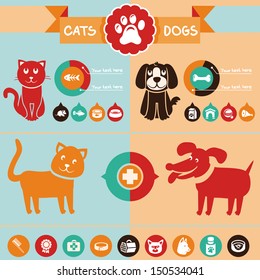Can Dogs Be Too Old For Daycare
Can Dogs Be Too Old For Daycare
Blog Article
Can Pet Dog Daycare Cause Illness?
Pets in childcare get lots of workout, socializing with various other dogs and one-of-a-kind experiences. This can be especially valuable for puppies and pets with behavior problems.
There are numerous legal considerations you need to think about when beginning a doggy daycare company. These consist of the framework of your organization and conformity with government policies.
1. Pooch Distemper
Canine distemper is spread through direct contact with the bodily fluids and waste of a contaminated pet, yet it can also be transmitted through common water and food bowls or via air-borne beads. This highly contagious disease is most hazardous for pups, yet it can influence dogs of any age and is fatal for many if left without treatment.
First symptoms of canine distemper frequently imitate a cold, consisting of drippy eyes and nose with watery or pus-like discharge. As the illness advances, a pet dog will certainly establish high temperature, coughing, minimized cravings, throwing up and looseness of the bowels. The infection can additionally strike the nerves, causing seizures, shivering and partial or full paralysis.
Reliable daycares lower direct exposure to infection by calling for inoculations, regular health examinations and adhere to rigorous health methods. If your dog appears extremely weary or hopping, a day off might aid him recuperate, however you must prevent taking him back to childcare till these signs and symptoms clear up.
2. Kennel Cough
Kennel cough, likewise referred to as contagious canine tracheobronchitis or Bordetella, is an extremely transmittable viral or microbial condition that affects the respiratory system. It's typically transferred with the exchange of saliva or air droplets that an ill pet dog breathes out. Social pets go to greater danger for infection due to their frequent interaction with one another, such as when they play, share food or water, smell each other or just meet in a crowded setting like a pet park or childcare.
One of the most typical symptom of kennel coughing is a relentless and powerful cough that sounds like something embeded the throat or retching. Commonly, pet dogs will certainly spend frothy white phlegm. If left unattended, a pet can establish pneumonia and boarding dogs be at serious threat forever.
A trustworthy childcare center should have strict cleansing and cleanliness protocols, sanitize all toys, food and water bowls consistently, and be open concerning their inoculation policies. Maintaining your pet as much as date on their vaccinations, especially for bordetella and canine flu, will significantly reduce their chances of getting the health problem.
3. Parvovirus
Canine parvovirus, or parvo, is a highly contagious viral ailment that can be harmful for puppies and young adult dogs with inadequate immune systems. It's most commonly spread out by direct contact with infected pet dog feces-- which can happen when dogs smell, lick, or taste contaminated feces-- and indirectly from polluted individuals, items, or environments (like kennels, grooming areas and yards). Puppies and pets without complete inoculation backgrounds are especially at risk to parvo.
The virus is extremely durable, surviving in the setting for as much as 9 years, and can quickly be transferred in between canines by call with feces or on footwear, clothes, and bedding polluted with parvovirus. Otherwise treated immediately with IV liquids, electrolyte equilibrium, vomiting control drugs and prescription antibiotics to prevent second bacterial infections, a pet dog will rapidly dry out and develop extreme diarrhea, which causes shock and sepsis. Parvo is tough to cure when a dog has actually become ill, yet with suitable vet care, lots of puppies do endure this illness.
4. Dog Flu
Canine flu infection is highly transmittable and spreads through straight call, sharing food and water bowls, licking or nuzzling other pets, through airborne beads, and through polluted surface areas. Vaccination works in reducing the danger of infection and episodes.
Most impacted pets establish a light respiratory infection with a cough that lasts 1-3 weeks. They might also have nasal and ocular discharge, sneezing, and sleepiness. Some of one of the most serious situations cause pneumonia and a high fever.
If your dog displays any one of these symptoms, do not bring them back to day care till they are healthy and balanced. If your canine is revealing indicators of extreme exhaustion or hopping, speak with your veterinarian today and ensure they get on healthiness supplements to help construct their resistance. A veterinarian will review your dog for symptoms of the influenza by taking an example from the nose or throat, and blood tests can be done to verify.